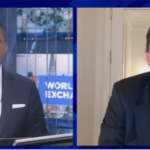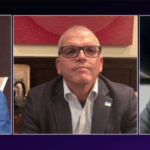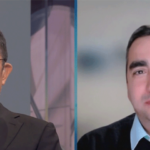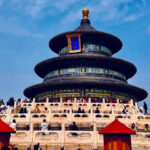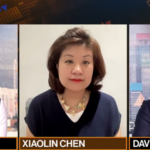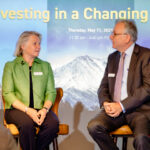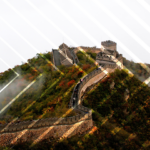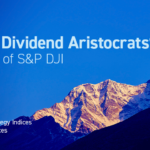Q&A with Steve Wang (汪洋) Deputy Director of Passive Investment – Bosera Asset Management
From Shenzhen to Omaha to New York City
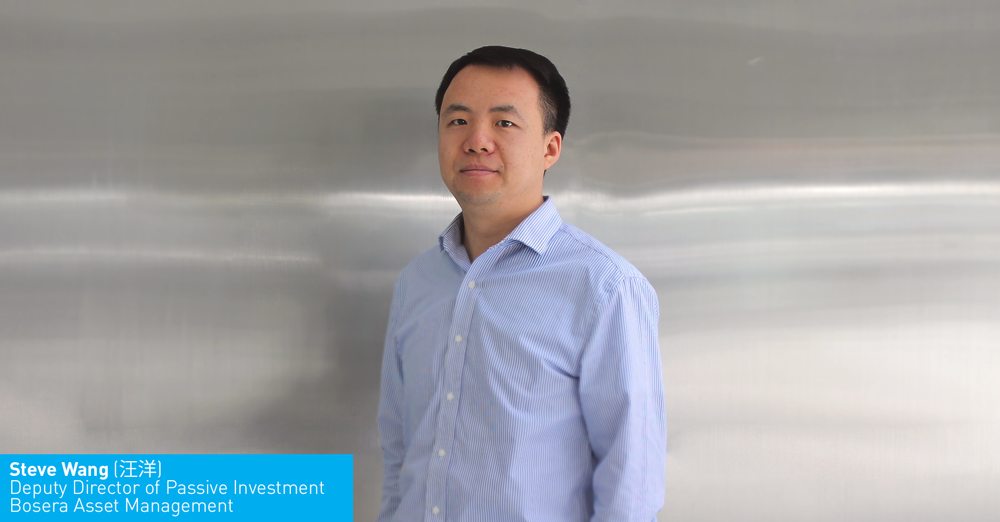
MAY 11, 2015 – Today Brendan Ahern, CIO of KraneShares, sat down with Steve Wang (汪洋) deputy director of passive investment for Shenzhen-based Bosera Asset Management. Bosera is the asset management arm of China Merchant’s Bank, one of the oldest and largest banks in China1. Bosera has $38 billion assets under management as of 12/31/20142. The firm is the sub advisor for the KraneShares Bosera MSCI China A ETF (ticker : KBA).
Steve joined us in New York City after a visit to Omaha, Nebraska where he attended the 50th anniversary of the Berkshire Hathaway shareholder meeting.
Steve shared his perspective on the historic bull market occurring in the onshore China markets. The rally in the onshore market began in the second quarter of 2014 and has since gained 128% as of 4/30/20153. Steve also discussed the internationalization of China's currency the renminbi (RMB), China’s One Belt One Road plan, and Warren Buffet’s comments on investing in China.
Brendan: China’s GDP is still growing though not at the double-digit rates we’ve seen in past years. Can you provide your views of China’s economy today?
Steve: China is a developing country that is currently enacting reforms driven by its new government. The economy is transitioning from being predominantly manufacturing based to being a healthier balanced economy with a focus on domestic consumption.
The government refers to this current stage of development as the “new normal”. The GDP growth rate may be slowing, but it is based off an economy that has grown so much already that a 7% or even 6% growth rate is still incredible.
Brendan: The new leadership came into office with a reputation for being reformers. Can you speak to the reform agenda?
Steve: China’s leadership is dedicated to liberalizing its economy and allowing natural market forces to prevail. One area of focus the leadership has in this regard is unlocking shareholder value in state owned enterprises (SOEs). The goal is to drive efficiencies and help SOEs compete internationally.
While there are reforms focused on the economy there are also reforms to benefit society such as greater healthcare and social security access. The government wants to make China a better place for its citizens.
Brendan: The onshore equity market has been one of the best performing stock markets globally. What is driving the market today?
Steve: There are three key points: First, economic cycles dictate there will be bull and bear markets. Right now we are in a bull market.
Second, mainland investors have positive expectations for the reform agenda. Investors are confident in the government’s ability to successfully enact reforms. This may be the primary driver of the strong performance.
The third key point is that liquidity is coming back into the market. Historically, Mainland Chinese investors primarily put their money into housing and shadow banking; this is no longer the case. At this point housing is not going up, people do not generally expect further gains from housing so the money needs to go somewhere else. In China the investment channels are limited, the mainland markets have been performing well and investors in China are increasingly seeing this as the best place to put their money.
Brendan: The onshore markets are up 128%, where do we go from here?
Steve: One shouldn’t expect the market to solely rise. There are different market segments that could see divergent performance. The small cap market may be over priced with high price to equity ratios, which could adjust over time. However we believe the blue chips are still reasonably valued. The blue chips are a big percentage of the market so we believe the market should continue to do well.
Brendan: Why do you believe the government is so interested in supporting the onshore stock markets?
Steve: The government has supported the stock market as it helps with their domestic consumption efforts. If investors are making money in the stock market they are more prone to spend money. The government wants to balance the economy through support. Historically a lot of money went into the credit market instead of the stock market. The government does not want to create liabilities through credit expansion.
Brendan: There has been a lot of talk lately about the concept of “A/H premium” can you describe what this is and whether it presents an arbitrage opportunity for U.S. investors?
Steve: The “A/H premium” refers to the price disparity of stocks that are dually listed on both the Hong Kong and onshore stock exachanges. In many cases Hong Kong (H-shares) have lagged their onshore equivalents (A-shares).
The Hong Kong market and the U.S. market are similar in that their primary investor-base consists of institutional investors. In contrast, the onshore equity market’s investor-base is primarily mainland Chinese investors. The Hong Kong market represents a global investor’s view of China while the onshore equity market represents a mainland Chinese investor’s view of China. In the long run the two markets should be directionally correlated. In the near term while the A/H premium exists, I don’t believe pure arbitrage is feasible because short selling is very difficult due to limited quotas and high fees.
Brendan: We know the International Monetary Fund (IMF) is reviewing China’s currency the renminbi (RMB) for reserve currency status. How important is this for China?
Steve: The government is focused on the internationalization of the RMB. We believe the current global economic structure is really G2, with the U.S. in the west and China in the east. China is very important to the global economy and the government wants its currency to reflect this importance through broadening the RMB's use in international transactions. National pride is also a factor. In the same vein, the government is very focused on the One Belt One Road policy. They want to continue trade with the U.S. but also expand trade with Europe, the Middle East and Africa.
Brendan: Can you explain the One Belt One Road policy for those unfamiliar with it?
Steve: The government wants to maintain China’s GDP near current levels. In order to achieve this goal China must increase its number of trading partners. One Belt One Road refers to the government’s new international infrastructure policy that will facilitate trade between China by land and by sea. One Belt refers to the maritime routes and ports needed to support increased trade by sea. One Road refers to ground infrastructure running along the old Silk Road trading route connecting China with the Middle East and Europe by land.
Brendan: You joined us here in New York City following a stop in Omaha for the Berkshire Hathaway 50th anniversary shareholder meeting. I understand Warren Buffet made some bullish comments on investing in China ¬ can you tell us what he said?
Steve: In regard to investing in China, Mr. Buffett said it is impressive what China has been able to achieve in such a short amount of time. He added that investors should have faith in China because it is the second largest economy in the world and will be the largest at some point in the future. Warren Buffett is a legend in China so it was great to hear him talk favorably about the Chinese markets.
Brendan: Many thanks for sharing your views with our readers Steve.
If any of our readers have further questions please feel to contact KraneShares and we can arrange a conference call with Steve.
- Source: China Merchant's Bank retrieved 5/11/2015
- Source: Bosera Asset Management as of 12/31/2014
- Based off the The MSCI China A International Investable Market Index (IMI) which captures large, mid and small-cap representation and includes the China A-share constituents of the MSCI China All Shares IMI Index. It is based on the concept of the integrated MSCI China equity universe with China A-shares included. From the start of the A-share market rally on May 16, 2014 through 4/30/2015.


